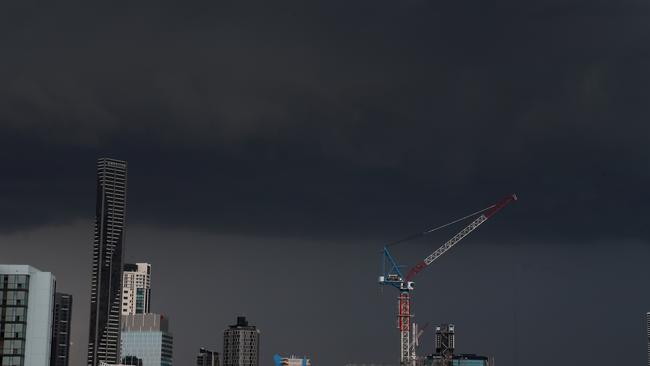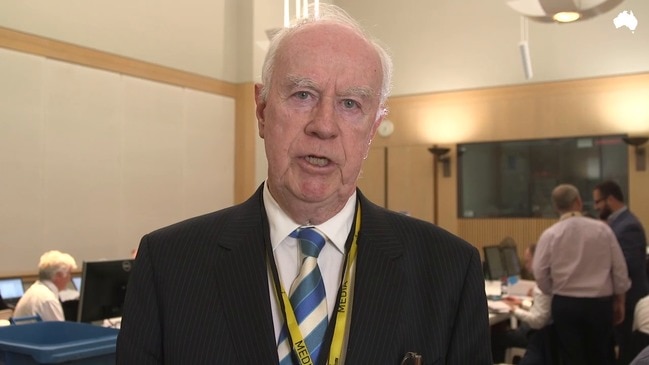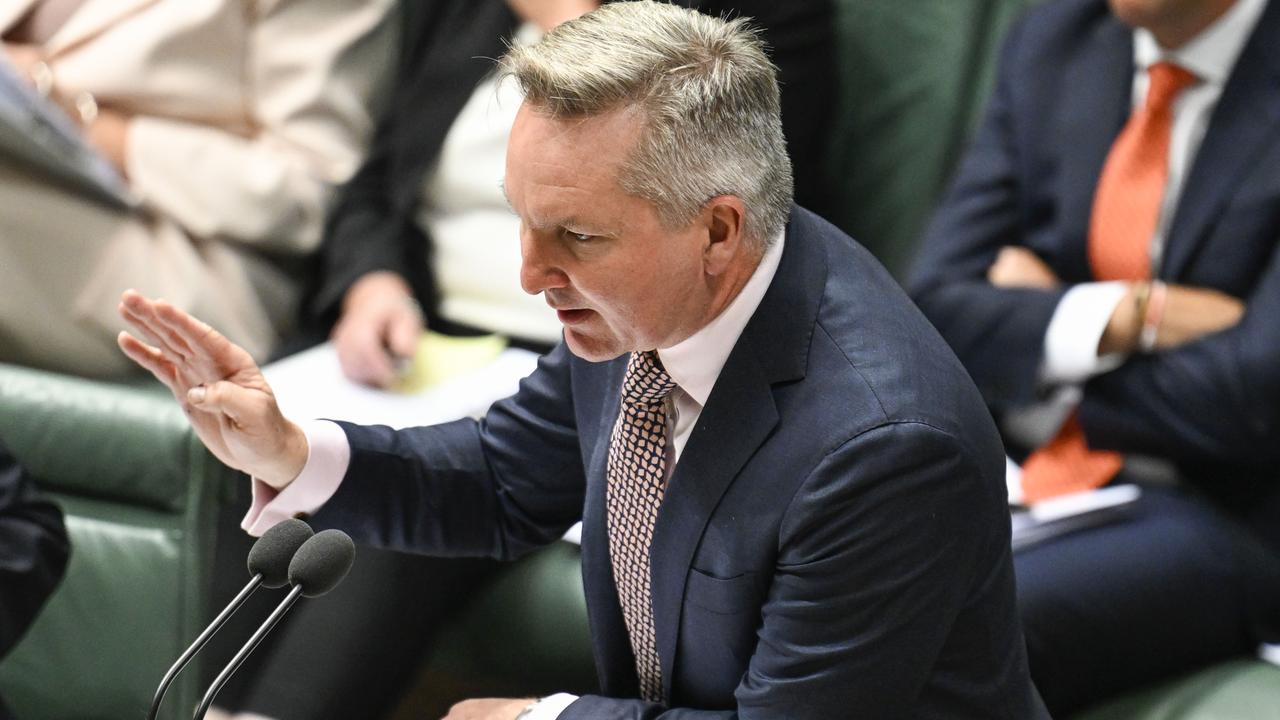
Josh Frydenberg has given a discreet nod to economic management and a great big bow to tax cuts, spending and the election.
The Treasurer’s first budget has the distinction of “being back in the black” for the first time in a decade despite the desperate efforts of the four previous Treasurers.
Being back in the black with a $7.1 billion surplus in 2019-20 gives Frydenberg economic management bragging rights and Scott Morrison an election theme of “trust us” with the economy over Labor.
This is the economic responsibility mantle the Coalition wants to wrap itself in to reinforce its strength as an economic manager and to contrast to Labor’s inability to deliver a surplus between 2008 and 2013.
It also provides the basis for the Prime Minister to argue that Australian voters deserve a “dividend” from this economic management and that tax cuts are both deserved and affordable.
But the size of the surpluses projected over the next four years — $45 billion — and the size of the tax cuts — $302 billion — look more like the cash splash Bill Shorten claims the Coalition is using to buy votes “only six weeks from an election” than the “extension of our economic plan” that Frydenberg claims.
Of course, Labor is claiming to be able to deliver more tax cuts to more workers than the Coalition and, given the Coalition will not put the entire tax package to the parliament this week, the two competing personal income tax plans will be competing at the election.
Therefore, the size of the tax cuts, when they are delivered to whom they are delivered will be a discrete election debate aimed at those on low and middle incomes. This will be a straightforward shoot out.
But the second part of the economic equation will be more complicated. Frydenberg talked in his budget speech about “our record”, that is, delivering a surplus and starting to reduce debt.
Shorten and Shadow Treasurer Chris Bowen say they will deliver bigger surpluses and reduce national debt faster than the Coalition. It is here Morrison and Frydenberg will argue, leapfrogging back over the Turnbull and Abbott years to the Howard-Costello days of surplus, that they can be trusted to deliver while Labor has failed.
This argument is directed at the staunch Coalition supporters who overwhelmingly want debt and deficit reduction as a priority over government spending and even, at times, over personal tax cuts.

There is also a hidden stream of negativity in the budget, at least it’s underplayed, which is directed at pointing out economic uncertainty globally and domestically while trying not to talk down the economy.
The biggest single example of an implied threat in the budget papers is the projected downturn in housing dwelling construction, the fall of housing prices in Sydney and Melbourne and a connected decline in household wealth, revenue and expenditure.
Frydenberg put the threat in his own words when he declared “there couldn’t be a worse time” to put a new tax on housing investment.
This is a specific Labor threat the Coalition has identified but the economic outlook contains more warnings about possible global downturns in trade, commodity prices and adverse “geopolitical events”. The Coalition wants to reward hard work, appeal to those attracted to Shorten’s “living wage” offer with tax cuts, claim superior economic management and warn of dangers without spreading alarm or undercutting the economic progress.
The result is a budget that’s headline is “back in the black” but its bottom line is $302 billion in tax giveaways and $100 billion in spending on “micro” projects down to a local council level of car parks and side roads.



